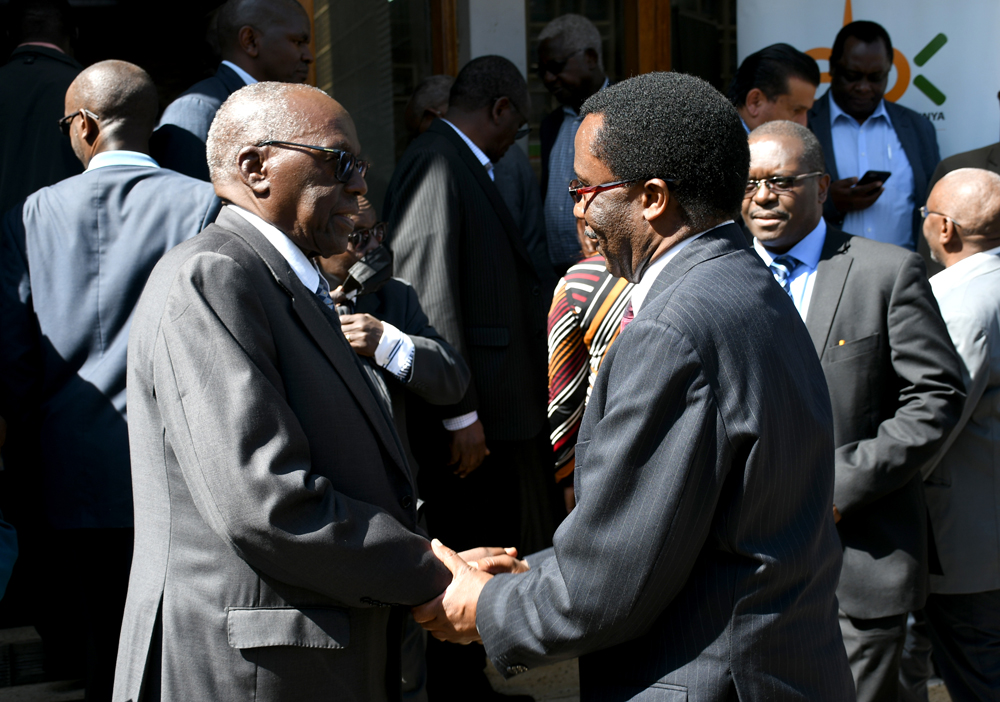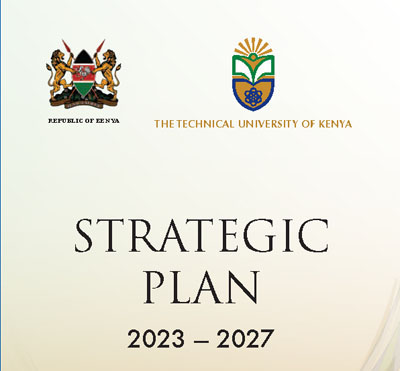Engineering programmes at The Technical University of Kenya will soon be accredited. Engineers Board of Kenya (EBK) Chairman, Eng. Erastus Mwongera has announced that the accreditation process is currently in its last stage. Eng. Mwongera, who was accompanied by Board Registrar and CEO Eng. Margaret Ogai, spoke during the board’s independent review evaluation exercise at TU-K.
“This exercise is the culmination of several discussions, and it is the final step in recognition of the University’s engineering programmes. I want to commend the Vice-Chancellor for taking steps to ensure the following engineering programmes have been submitted to the Board for recognition,” Eng. Mwongera said.
The programmes include; Bachelor of Engineering Chemical Engineering, Bachelor of Engineering Aeronautical Engineering, Bachelor of Engineering Mechanical Engineering (accredited but submitted for review), Bachelor of Engineering Biosystems and Environmental Engineering, Bachelor of Engineering Civil Engineering (accredited but submitted for review) and Bachelor of Engineering Electrical & Electronics Engineering.
The EBK team was hosted by the Ag. VC Prof. Paul Shiundu. Others present were: DVC. Prof. Paul Wambua and the Faculty of Engineering and Build Environment, the EBK members of the Academic Qualifications Committee and the Independent Review Taskforce.
The EBK chairman underscored collaborative efforts the board has explored with Commission of University Education in ensuring harmonised accreditation procedures of engineering programmes.
“I would like to point out the Board is pursuing a collaborative framework with the Commission of University Education on matters of accreditation. In this case, the CEOs (EBK & CUE) had a meeting in May this year and agreed to form a technical team that will work together on the recognition of engineering programmes,” Eng. Mwongera said.
He emphasised that the board intends to increase the transitioning of graduate engineers to professional engineers through the Graduate Engineers Internship Programme.
“There are three models which the Board has developed under this programme including; Government funded model, agency-based model and academia based model,” said Eng. Mwongera.
This, he said would fill the slow transition gap of graduate engineers who are lecturers to professional engineers, as well as improve the quality of teaching and foster strong linkages between academia and industry as well as motivate the students they teach.
Prof. Shiundu said the occasion and recognition of the programmes currently run at the university is a special moment.
“It pains a lot when we have graduates encountering challenges in the job market. We want them and the industry to be assured of our training,” Prof. Shiudu said.


